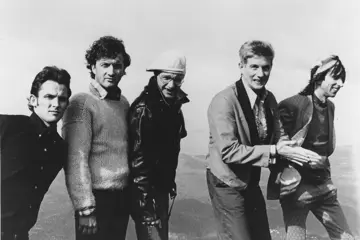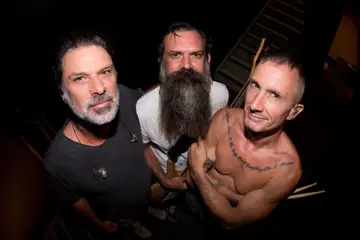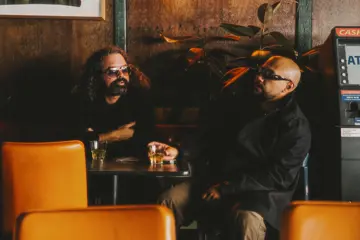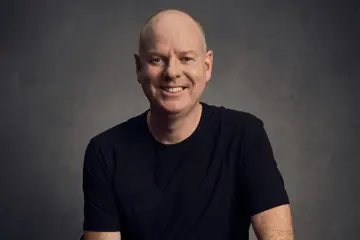It sounds surprising, but A Life Of Its Own: The Truth About Medical Marijuana is one of 2016's saddest films. There's no ironic replaying of Reefer Madness-styled fear-mongering or evocations of countercultural cool. Instead, there's families suffering from terminal illnesses and degenerative diseases, proselytising cannabis's medical potency and lamenting its marginalised status in the medical industry.
"I was watching it again at 2am last night," says Helen Kapalos, its director. "I had another good cry. Every time I watch the film, I cry. Every time I even watch the trailer, I cry. It's terribly sad. There are [subjects] that, during the making of the documentary, passed away. It's heartbreaking. People contact me every week asking where they can get some cannabis oil, if there are any compassionate grants available. These are desperate people, who're not having success with other drugs. Every time I watch it I'm filled with frustration, with sadness for all this suffering that's going untreated."
"There are [subjects] that, during the making of the documentary, passed away. It's heartbreaking."
Kapalos, a 45-year-old journalist who's worked for every major Australian TV network — including stints as newsreader and current affairs show host — is an "unlikely activist", which suits a film that challenges stigma and stereotype. She was inspired to make it after undertaking an initial tabloid-TV report. "I didn't expect to see the wide-ranging applications, and that, for example, epilepsy treatments involved strains high in CBD, which is a part of the plant that isn't even psychoactive," she says. "Afterwards, there was such a huge response to the story, but I was disappointed that it quickly became a sensational topic, rather than a topic we were looking at seriously. That's what really motivated me to, literally, go to the bank one day and say: 'How much money can I get out? I need to make a documentary.'"
A Life Of Its Own: The Truth About Medical Marijuana became, then, a labour of love. "I self-funded it, had to take time off work, and eventually I left Channel 7 so I could finish the documentary," Kapalos recounts. "It became an obsession, to me, to finish it, to depict the subject it the right way. I was frustrated that people are given such misinformation about the subject. So, I wanted to shed some light on this subject. It was a bit like Medical Marijuana 101: this is how it works."
Don't miss a beat with our FREE daily newsletter
Kapalos wanted to counter "the perception that it's being legalised, and that the conversation is changing rapidly". In the US marijuana may be legalised in 24 states, but on a federal level it's still legally classified as more dangerous than cocaine and methamphetamine. This limits research opportunities, as does the power and sway of pharmaceutical lobby groups. "It seems really, really baffling that the research has been blocked, but, then, a lot of it is tied to Big Pharma," Kapalos says. "For me, the big take-home is: Why aren't we doing more? Why isn't there more research? Will Big Pharma ever fund a clinical trial with the whole plant? It's really befuddling to me that in 2016, we're still looking at things through this conservative old paradigm. That we're, still, putting profits ahead of people's health and wellbeing."














